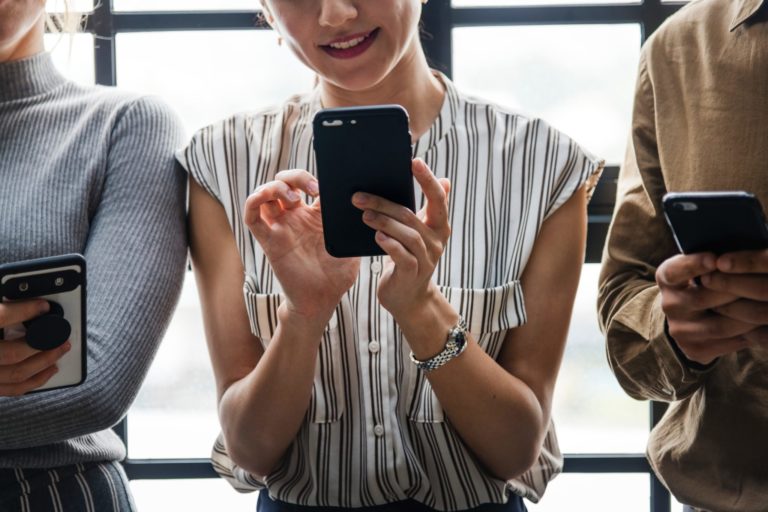
I’m going to start this article with a stat. An average a person spends 5 years of their life on social media. How crazy is that? Well, a quick look into my screen time makes me think that maybe this is not that unbelievable. This made me wonder how much influence social media has on our lives. How much can the internet affect our daily lives? And more importantly, how much does it affect our mental health?
The Green Monster and Feelings of Inadequacy
Social media offers us a multitude of benefits such as connecting with people from all over the world, seeing new places and more importantly it keeps us updated with everything that happens worldwide. These days, however, the line between healthy and unhealthy social media usage is sort of blurred. While back in the day, people were using the internet to have access to new information, these days the majority of people use social media to look at what their peers are doing. This is becoming an unhealthy behaviour, as we start comparing our lives to the lives of the ones we’re following. I mean, how many times have you looked at an Influencer’s social profile and got depressed? I know I get the usual pang of jealousy every time I see someone flying with their private jet to an exotic location on a whim. Unless you are one of those people who spend their time on social media looking at inspirational posts and watching motivational videos, then you understand how social media can make you unhappy. Not only it has been proven that social media can cause unhappiness, but it can also lead to the development of mental health issues such as depression or anxiety when used excessively. People with already low self-esteem and insecurities are already at high risk of developing depression.
We all have our insecurities whether we like to admit it or not. Instagram is a great social media channel to connect with other people as it increases in popularity each year. Just last year, Instagram managed to reach 1 billion users. The platform offers users the possibility to add photos of yourself, your food, your friends; thus, pretty much everything. In some cases, you have full access to their everyday life. And that’s where the issue is. You get to look at their aesthetically perfect pictures or their videos portraying their fun activities. Someone got engaged, someone just had a baby or someone is on holiday in Belize, while you’re dealing with your 9 to 5 jobs in a rainy city during a particular non-eventful week. This just increases your feelings of inadequacy and self-doubt. We decide our self of worth based on other people. They own 2 apartments in London and 1 in Brighton and I don’t, so I must be inferior to them. As a species, we are programmed to put more emphasis on the negative aspects and what social media does is fixating on that. That’s why when someone pays you a compliment and then you have someone pointing out a negative trait of yours, you are more likely to remember the negative comment rather than the positive one.
False Advertising and Social Comparison
It’s very easy to forget that all the celebrities you follow airbrush their photos and you only get to see a tiny fraction of their day. You literally only see whatever they want you to see. With daily vloggers and other YouTubers you only get to see a maximum of 20 minutes of their days. From those 20 minutes, you still have other 23h where they probably get sad, cry, get in arguments with loved ones. I’m sure your favourite beauty guru doesn’t always feel beautiful or doesn’t always have perfect skin or perfect hair. We focus on the number of friends others have or how many more likes and comments than us they got and forget that it’s not a competition and the number of ‘hearts’ you have on Instagram doesn’t determine your value.
There is a social comparison factor which is the link between social media and depression. Even with people who do not have major issues with their bodies, after checking the social profile of a person they deemed as more attractive than them, they reported feeling more insecure about their appearance after performing this task.
The Solution?
In studies conducted in which people had to spend less time on social media, they reported feeling less lonely. It’s ironic really. It was observed that people who were using fewer social media channels or were just limiting their time on these platforms, were more satisfied with their lives. Reducing our time on social media for periods can help in maintaining tunnel vision throughout the day. By tunnel vision, I am referring to only focusing on yourself. Reducing our screen time and consequently spending less time on social media can reduce anxiety and depression as numerous studies have demonstrated. Becoming more aware of the amount you spend scrolling through other people’s social profiles is going to help you in focusing more on yourself.
While it’s easy for our grandparents and some of our parents to quit social media, that’s another situation for the younger generations. It’s hard for teens and young adults to do this as they are a generation raised on the internet, thus social media has become a major part of their lives. It’s hard to quit social media because the truth is nowadays is our best source of information; thus, we get to another mental health effect linked to the use of social media which is the fear of missing out or simply put FOMO. Maslow probably did not think of this when he was presenting the need to love and belong. As you might already know from Maslow’s hierarchy of needs, after our basic needs are met which are air, water food and shelter, we need safety which as the name says consists of our need regarding personal security such as employment and health. And you know what happens when these needs are met as well? We have other needs which are centred on inclusion and sense of connection. FOMO and the need to belonging are linked. It’s this need to be included, to be up to date with everything that makes cutting our time on social media this hard.
I’m in no way saying that you should quit social media for good, but if it’s making you unhappy then try spending less time on social media during the day or give yourself some days where you don’t check your Facebook or Instagram feed at all. Just see whatever works best for you.



Insightful piece. I don’t think I’ll ever be able to give up on social media. I don’t even use my phone to message people as I just use facebook messenger. I don’t know how people were doing this in the past. I mean, what do you do when you’re bored? haha